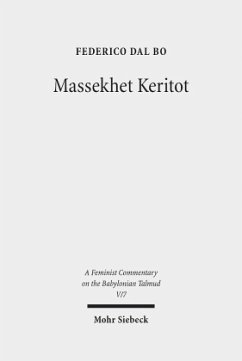The tractate Keritot of the Babylonian Talmud belongs to the Order of Qodashim in the Mishnah. It discusses the Temple and its rituals, especially sacrifices, but deals mostly with laws of incest, sexual transgressions, childbirth, and miscarriages. In this commentary, Federico Dal Bo provides a historical, philological and philosophical investigation on these gender issues. He discusses almost the entire tractate, referring to many other sources, Jewish (the Dead Sea Scrolls, the Sifra, and other rabbinic texts) as well as non-Jewish (Akkadian, Hittite, and Ugaritic). The author also provides accurate philological observations both on the Mishnah and the Gemara. Finally, he addresses gender issues by combining a reductionistic approach to Talmudic study (the so called "Brisker method") with philosophical deconstruction. Dal Bo shows that in nearly the entire tractate Keritot the rabbis discuss human sexuality in a tendentious and restrictive way, claiming that heterosexuality isthe only proper sexual contact and progressively stigmatizing any other kind of sexual behavior.
Bitte wählen Sie Ihr Anliegen aus.
Rechnungen
Retourenschein anfordern
Bestellstatus
Storno

